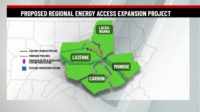
Despite perceived headwinds from ongoing legal actions tied to an alleged contract bribe scheme under long-departed management, current top executives of SNC-Lavalin Group expressed confidence to stakeholders and observers that the issues have not hurt the company bottom line.
More than three years after the Montreal-based engineer-contractor and two units were charged with bribing Libyan officials for over a decade, ending in 2011, federal prosecutors and SNC-Lavalin executives on Oct. 29 began presenting their cases to a Quebec judge who will decide in a four-week hearing if a criminal trial should proceed.
That hearing, which is closed to media coverage, follows the federal government’s refusal on Oct. 10 to execute a deferred prosecution agreement (DPA) with the firm under a newly enacted Canada law, for reasons not told to the firm or made public.
As a result, SNC-Lavalin last month also filed an appeal with the Federal Court of Canada for a judicial review of the decision by prosecutors. The company is “in the dark as to how they failed to meet the requirement of ‘appropriateness,’ or why the public interest requirement, though met, has apparently been ignored,” its legal filing says.
The document adds that prosecutors did not consider information the company provided related to “turnover” of previous senior management.
SNC-Lavalin has also sought to make its case in the court of public opinion, issuing comments on its website and in media ads from CEO Neil Bruce in which he “apologized for the shortcomings that took place prior to 2012, which should have never taken place,” and noting the firm’s efforts since then “to achieve excellence in governance and integrity in an effort to regain the confidence of all our stakeholders and employees.”
Bruce joined the firm in 2013 and became CEO two years later.
Legal Risks
Kenneth Jull, an attorney with Toronto-based Gardiner Roberts and a DPA proponent, says SNC-Lavalin’s bid for the remediation agreement may face challenges because the firm did not directly approach federal law enforcement officials about evidence company executives uncovered themselves about the alleged corruption.
Jull, a University of Toronto law school educator on financial crimes and corporate compliance, says the bar has been purposely raised high to prevent companies from believing that a monetary settlement can resolve illegal behavior and prevent legal penalties.
Even so, that does not rule out a remediation deal if SNC-Lavalin can prove it has gone above and beyond to make needed ethics reforms, he says.
But the firm will have a bigger challenge in its judicial review appeal to show that federal prosecutors acted outside their authority in rejecting the remediation deal, says J. Bruce McMeekin, a Toronto corporate lawyer. “My gut is that SNC-Lavalin has a big hill to climb,” he says.
A conviction would disallow SNC-Lavalin from bidding on government contracts for a decade, with repercussions extending to its global business.
The firm is a 50% partner in the consortium building the $3.1-billion Champlain bridge in Montreal, which announced on Oct. 25 it will miss a Dec. 21 deadline to finish the span due to myriad delays.
It is in talks with federal officials in a bid to ease steep contract penalties. “Our consortium is working with our client to open for traffic as early as possible in the spring,” Bruce said in the firm’s third-quarter results call with analysts on Nov. 1. “We don’t expect to incur any penalties, as the delays were caused by issues out of our hands.”
Balance Sheet Holds Up
Bruce said that SNC-Lavalin’s financials appear to be holding up despite the legal distractions. It reported a third-quarter profit of $120.7 million (C), up from $103.6 million(C) a year ago. “Despite the political issues we’ve had to contend with, our business is solid,” said Bruce, adding that earnings per share from its engineering and construction business were 39% above the same quarter last year and that the firm is seeing “tangible revenue synergies” from its 2017 acquisition of U.K.-based Atkins.
According to Bruce, the firm's infrastructure business "had another good quarter," with a 21% increase in revenues and backlogs at $8.7 billion.
He added that executives are "very bullish" on its nuclear business, with strong growth prospects in nuclear power plant decommissioning work in North America. Bruce said 35% of the firm's year-to-date nuclear revenue was generated from decontamination, decommissioning and waste management projects.
The CEO also noted "value creation" from its concessions business, which generated $44 million of net income in quarter three from the recent sale of its stake in Astoria II, a New York thermal power plant. He said talks to sell its Highway 407 concession in Canada remain in progress. "We continue to believe that this asset is currently undervalued," he said. Bidders are still in the due diligence process, so we have not yet received formal offers."
Bruce told analysts that the legal overhang "hasn't had any impact whatsoever on our ability to bid and win work, although it has regenerated a whole bunch of conversations where we need to go and talking to clients about stuff that, frankly, we'd rather not talk about." But he emphasizes, "we have had no clients whatsoever changing their approach ... and that, of course, includes the government of Canada. We are still operating under the integrity agreement that we signed."
The CEO demurred on analysts’ queries about rumors of a company breakup if legal issues are not in its favor. “We haven’t been specific about Plan B,” Bruce noted.






Post a comment to this article
Report Abusive Comment